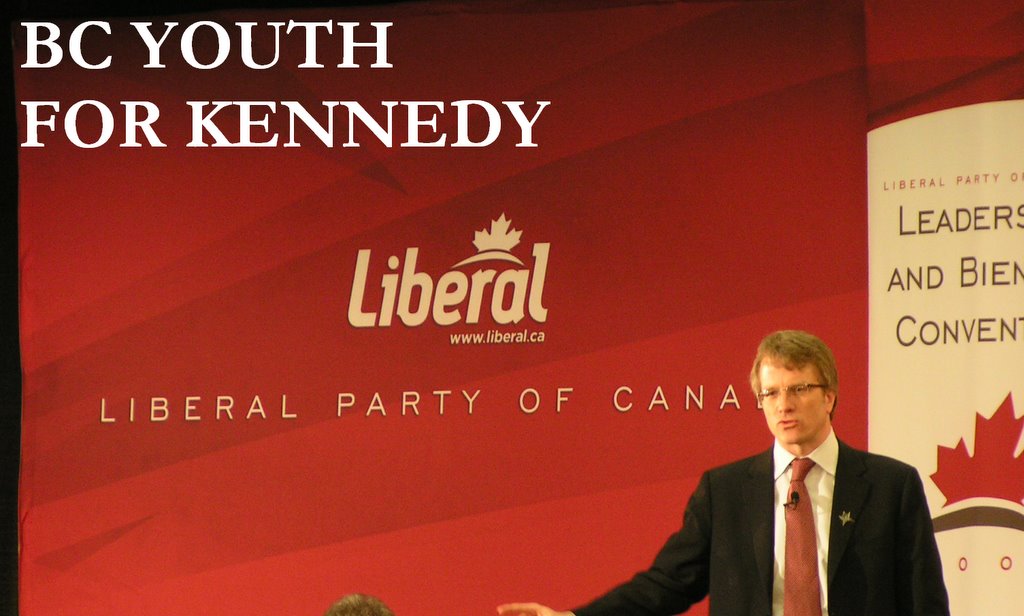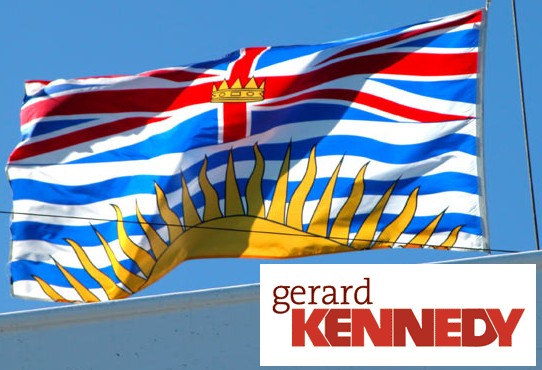Practical Idealism - The Liberal's Party's Way Forward
KENNEDY TOUTS PRACTICAL IDEALISM
Wednesday, June 14, 2006 Winnipeg Free Press, Greg Lockert
Federal Liberal leadership hopeful Gerard Kennedy is easy on the ears. He sports a deep, clear voice that would be as perfect for the world of broadcasting as it is for political life. Were he to become prime minister, he could probably one-up former prime minister Brian Mulroney's smooth delivery -- without the blarney.
Kennedy, who is originally from The Pas, said he has a Western sensibility that has been lacking in the federal Liberals for a long time. He figures he can regenerate the Liberals out West.
"We can't be blanked out in the West and still be a national party," he said. And he said the party is ready for someone originally from the West. "The party has never been so open as this."
Until recently, Kennedy was a strong cabinet minister in Ontario Premier Dalton McGuinty's provincial government. The future appeared wide open to him in Ontario provincial politics. So what would convince a young, successful education minister to take a stab at becoming national Liberal leader?
For Kennedy, it's all about saving both the federal Liberal party and the country. Kennedy is convinced that the Liberals and Canada are adrift and he's the guy to set them back on the correct course. The Liberals, Kennedy told the Free Press editorial board on Monday, were lulled into complacency by a divided opposition once they had cured Canada of its deficit. As for the country, he claimed it's falling behind in the global economic race, and said that Prime Minister Stephen Harper's "neo-con" and "Republican" style of government is doing nothing to stop that decline.
Kennedy intends to fix both the Liberal party and Canada by forming "a coalition of practical progressives" under the Liberal banner, and developing "a new value of enterprise" that would involve setting targets for Canada and benchmarks toward achieving them. Keys to achieving these targets would be skills training and targeted social programs. Kennedy said there is a large pool of money available to fund training through federal skills and training.
Kennedy, a former food bank executive in Edmonton and Toronto, also preaches an economic message, saying he has an "enterprising outlook." He said that Canada has become complacent and that too many Canadians are afraid of risk.
"We need a longer-term view if we're going to compete," he said, adding that targeted tax incentives and market-driven incentives can be used to bolster Canada economically, especially regarding things such as venture capital. Programs like equalization, which he supports in principle, too often fail to offer incentives for economic progress, Kennedy said.
Vision for Canada
Kennedy's vision for Canada is grand and ambitious. He doesn't talk like a status-quo politician. But his goals for education are fraught with danger because education is a provincial jurisdiction and provinces jealously guard their control over schools, colleges and universities. It would be especially difficult for Kennedy to get Quebec on board.
But Kennedy surely understands the challenge ahead of him should he become Liberal leader. Otherwise, why would he seek to become Canada's education prime minister? No, Kennedy didn't use those exact words during his meeting with the Free Press. And he would probably chafe at hearing them owing to the fact that George W. Bush once said he wanted to become the United States' education president. But the topic of education continually pops up in conversation with Kennedy, and education prime minister would be an appropriate moniker for him.
Political message
Kennedy's political message is high-minded and idealistic. He said he never planned to become a politician, but decided to make the jump from food bank executive to politician when he became disenchanted by the Mike Harris Conservatives during the 1990s in Ontario. Kennedy clearly respects the role of government in people's lives and believes in its power to improve the economic lot of Canadians.
And twice, during his meeting with the Free Press, Kennedy mentioned the name of British Prime Minister Tony Blair, who has been a role model to many who are optimistic about the ability of government to better human society. Although Kennedy is careful to distance himself from Blair's foreign policy regarding issues like the Iraq war, he said he has met with Blair's people in the past and respects "Blair's realism."
Where Kennedy will find a real battle during his leadership run is over Canada's role in Afghanistan. He has spoken against the recent House of Commons vote that extended Canada's current mission in Afghanistan by two years, and told the editorial board that he doesn't "support being in Afghanistan on a blank cheque."
Kennedy's stand runs against Liberal leadership front-runner Michael Ignatieff. It also contradicts interim Liberal leader Bill Graham, the former Liberal defence minister who oversaw Canada's growing military deployment in Afghanistan while Paul Martin was prime minister.
Kennedy likes to talk about traditional Canadian peacekeeping and reconstruction efforts without facing up to the fact that none of that can occur in Afghanistan until the Taliban has been militarily crushed. And it's unlikely that the United States can permanently defeat the Taliban without the help of its allies, which is why NATO is in Afghanistan to begin with.
Alas, Kennedy probably realizes this, but knows that there is a sizable Liberal constituency that won't support his leadership bid if he backs Canada's current strategies and tactics in Afghanistan. After all, the current government is run by that so-called neo-con and Republican, Stephen Harper.
This knee-jerk opposition reveals that although Kennedy may be an idealist, he still retains a sense of realpolitik that enables him to back policies that are clearly illogical and contradictory. In that way, he is likely well-suited to leading a national political party.







<< Home